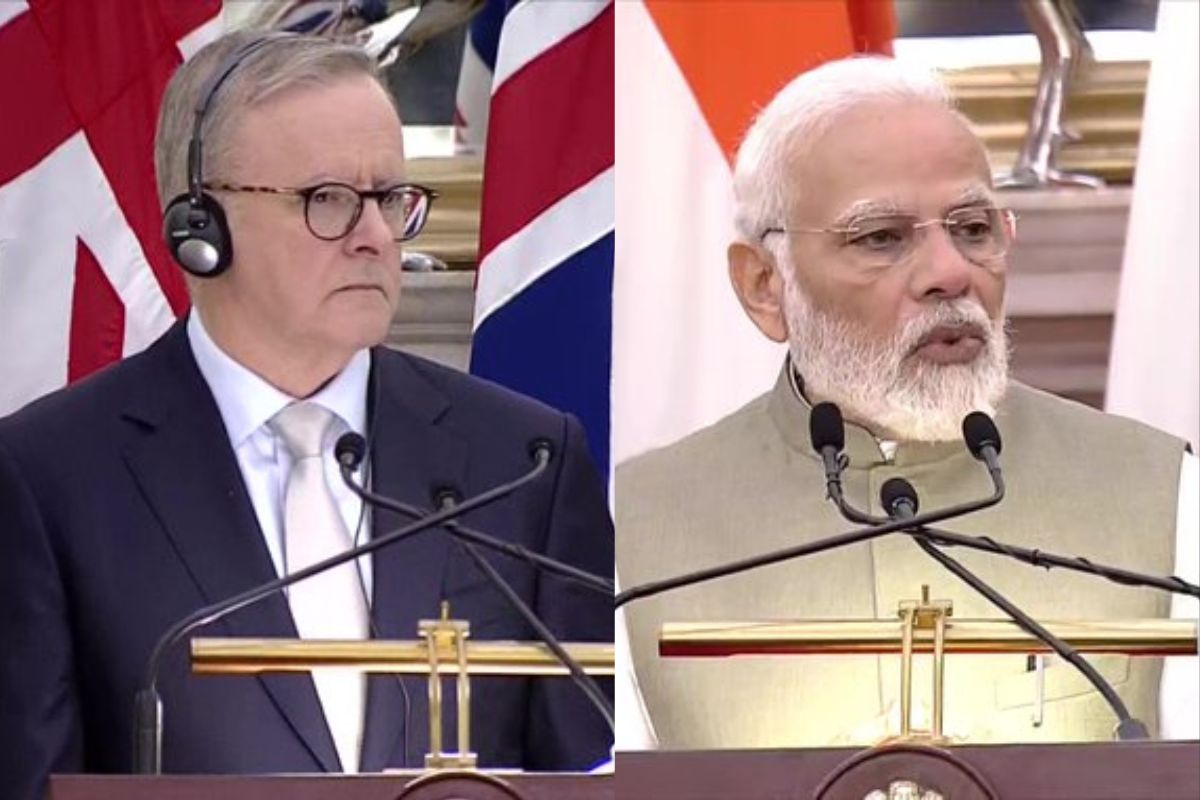Australian Prime Minister Anthony Albanese on assured Prime Minister Narendra Modi that the safety of Indians was a priority for him after the Indian leader raised with him the recent vandalism of Hindu temples in his country as their two nations decided to deepen cooperation in diverse fields by signing four key accords.
”It’s a matter of regret that there have been reports of attacks on temples in Australia in recent weeks. It’s natural that such news makes people in India worried. I conveyed the sentiments of the people of India to Prime Minister Albanese. He assured me that the safety of the Indian community is a special priority for him,” Modi said at a joint media interaction with the Australian PM after the first India-Australia Annual summit.
Advertisement
Later, at a media briefing, Foreign Secretary Vinay Kwatra said the Indian side also conveyed to the Australian side its concern over the activities of ‘pro-Khalistan’ elements in Australia. ”The Australian side said it would look into the issue and take suitable measures,” he added.
Amid increasing activities of ”pro-Khalistan” by some proscribed terrorist organisations such as the Sikhs for Justice (SFJ), the Indian High Commission in Canberra in January asked the Australian authorities to ensure the safety and security of Indians there. There have also been at least four incidents of vandalism of Hindu temples in Australia over the past two months, allegedly by ”pro-Khalistan” supporters.
Modi said the two countries have also recently signed an accord to grant mutual recognition to educational qualifications. The two sides were also negotiating a mobility agreement which would be beneficial for students, workers and professionals.
The PM said the Economic Cooperation and Trade Agreement (ECTA) signed by the two countries last year has opened up many trade and investment opportunities between the two countries. The two countries were also working on a Comprehensive Economic Cooperation Agreement, he added.
The two PMs also discussed defence and security cooperation between the two countries. Albanese said defence and security was an important pillar amid the increasingly uncertain global security environment. “I welcome significant and ambitious progress under the Defence and Security pillar of our relationship. Prime Minister Modi and I are discussing an increasingly uncertain global security environment and committed to strengthening the Australia-India defence and security partnership to address shared challenges and work towards an open, stable and prosperous Indo-Pacific,” Albanese said.
The Australian PM welcomed increased defence information sharing between Australia and India, including in the maritime domain. He expressed the hope that the two countries would be able to conclude the Comprehensive Economic Cooperation agreement by the end of this year.
New Delhi and Canberra are looking to expand cooperation in defence, clean energy, education and economic spheres. Modi said they agreed to step up cooperation in the field of renewable energy, and identified clean hydrogen and solar energy as the two areas of cooperation with Australia. The two leaders also discussed the progress in the negotiations of the migration and mobility agreement, which is expected to benefit students, professionals, workers, academics and researchers.
While Albanese said he looked forward to welcoming Modi to Australia for the Quad leaders’ summit in May this year, Modi said he was looking forward to welcoming his Australian counterpart for his second visit to India later this year — for the G20 summit in Delhi in September. The two leaders also discussed cooperation in the critical minerals supply chain.
The four accords signed by the two sides relate to cooperation in audio-visual co-production, sports and scientific research and the setting up of task forces on solar and green hydrogen.











